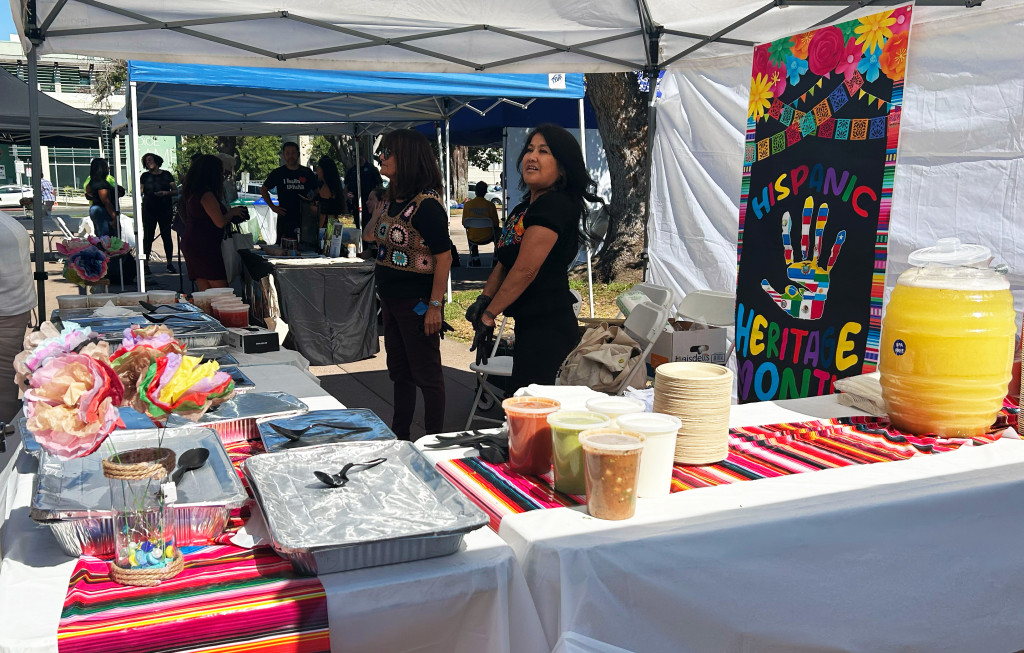On Wednesday, Oct. 2, 2024, the City of Berkeley’s Health, Housing and Community Services and Mental Health Division hosted a Hispanic Heritage Month event at the MLK Jr. Civic Center Park. The event aimed to showcase the contributions of Hispanic and Latine communities while providing accessible resources and services. Positioned in a central location for both students and the broader public, it offered an opportunity for attendees to engage with diverse Latine culture and history.
The celebration included Latine music, guest speakers, artwork, and resource booths. Catered by Talavera Taquería and Cafe Platano, the event offered a variety of dishes including pozole, ceviche, and tamales.
Hansel Alidad, the Director of Police Accountability in Berkeley, saw the event as an opportunity to educate the public about Latin American history, which is a central focus of Hispanic Heritage Month.
“This month is special because it celebrates the independence of many Latin American countries, including Honduras,” Alidad said, “We’re very resilient as a people, having faced historical challenges like colonialism in Latin America and more modern struggles in the U.S. That resilience and sense of togetherness are important aspects of our identity.”
Lisa Lieberman Baluch, representing La Clínica de la Raza in Oakland, spoke about the importance of mental health services within the Hispanic community. La Clínica provides multilingual services with a focus on prevention and early intervention. “We use traditional healing and ancestral practices for well-being (and) we hold a lot of celebrations in the community and promote mental health through these traditional practices,” Baluch said.

In the Bay Area, finding spaces or resources that reflect Hispanic, Latino, and Indigenous cultures can be a challenge, according to Baluch. Events like this offer a space for representation.
“People of Hispanic descent, Latinos, Indigenous folks, we’re here (in the Bay Area), living our traditions and culture. I love to see these types of events, because the students walking by can see the food, hear the music, smell the aromas, and take in the colors. I remember coming here at age 11, searching for people who looked like me and spoke my language; things that connected me to home,” Baluch said, “These events can offer that for young people and adults who are going through the same experience.”
Alex Tadari, an artist with the Bonita House, an arts program supporting adults with mental health challenges, shared his perspective on the impact of cultural representation. Tadari creates surrealist and magical realist art, driven by his Latino heritage.
“I feel like there’s a pressure for Latinos to assimilate into American society, and that’s something I actively resist … It drives me to create art and paintings, it’s all about celebrating my culture and the deep meaning it holds for me,” Tadari said.
Tadari emphasized the importance of cultural events in fostering representation, allowing artists like him to showcase their identities and celebrate their heritage.
Vanessa Serakos, representing the Pacific Center for Human Growth, an LGBTQIA+ mental health center, also spoke about representation. “I don’t think events like this were as common in the past, so having this kind of representation today is important,” Serakos said. “People can come here and learn about the resources available to them, whether it’s related to their culture, race, or even their subcultures, like being both queer and Hispanic. It’s crucial for them to know that support exists, which wasn’t always the case in the past.”





